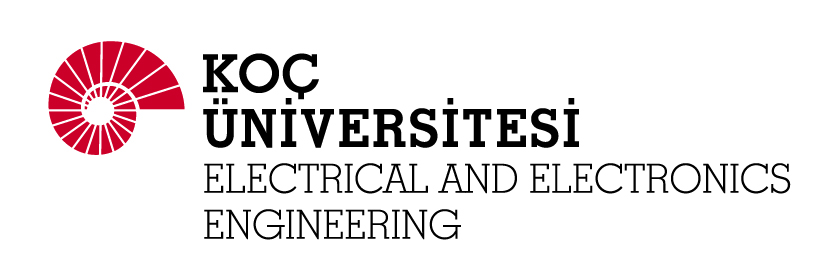Objectives and Outcomes
Electrical and Electronics Engineering Program Objectives:
Graduates should be
- Recognized for excellence in technical and professional problem-solving, teamwork, communication, and leadership skills, and excel in careers in national and international companies in engineering, research and development, business and managerial positions,
- Able to perform independent research to help define the frontiers of knowledge in electrical and computer engineering or related interdisciplinary areas and pursue graduate study at top-ranked universities worldwide to become future national or international academic leaders,
- Innovators and entrepreneurs with a global vision, who can develop new technologies and/or products, and found new national or international companies in electrical and computer engineering or related areas.
Program Learning Outcomes:
Koç Engineering Graduates
- Learn advanced mathematics and natural sciences, and gain the ability to apply this knowledge towards modeling and solution of engineering problems,
- Gain the ability to identify, formulate and solve complex engineering problems,
- Gain the ability to design a component, process, system, or product to meet desired needs under realistic constraints and conditions, addressing economic, environmental, sustainability, producibility, ethical, social, political, health and security issues,
- Gain the ability to select and use necessary techniques, and modern engineering and information technology tools for engineering applications and practice,
- Gain the ability to design and conduct experiments, collect data, analyze and interpret data for engineering applications,
- Gain the ability to function in intra-disciplinary and multi-disciplinary teams,
- Gain the ability to effectively communicate in Turkish and English by oral, written, and graphical means,
- Recognize the need for and ability to engage in life-long learning and to reach the most recent information in science and technology
- Recognize and understand professional and ethical responsibility,
- Understand project management, risk management, and change management concepts; as well as awareness of the importance of innovation and entrepreneurship for sustainable economic development,
- Understand impact of engineering solutions in a global and societal context, including health, environment, safety and legal issues.
Electrical and Electronics Engineering Graduates
- Gain breadth in fundamentals of electrical and electronics engineering with required area courses, and provides depth in an area of specialization through 3 area elective and 6 free electives courses,
- Gain advanced mathematical foundation, including differentiation and integration, multi variable calculus, linear algebra, differential equations, complex variables, probability and statistics,
- Gain strong foundation in the main subjects covering the broad area of electrical and electronics engineering, including signal processing, analog and digital circuits, analog and digital electronics, electromagnetics and antennas, analog and digital communications, systems and control, microwave electronics with applications,
- Gain the ability to apply a combination of theory, computational simulation and laboratory experimentation techniques to design and analysis of electronic and/or optical components, systems, hardware-software systems or software systems of varying complexity in a way that demonstrates comprehension of the tradeoffs involved in the design choices.
